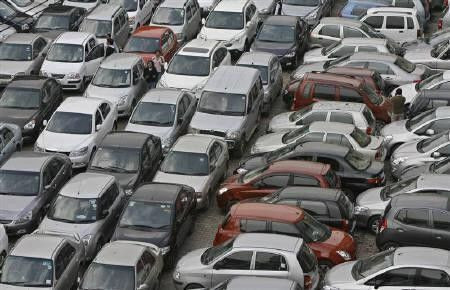Parknav GPS App Finds Open Parking Spaces For City Drivers

For drivers in places like L.A., Chicago, San Francisco and New York, finding a parking spot can be a huge headache. But what if there were an app that told you where to find an open parking spot, and gave you turn-by-turn directions to that space? That’s what ParkNav aims to do.
Over 50,000 people are currently using the app, created by Chicago-based AI Incube, in Chicago and Munich to locate parking, free or paid. The app lets you decide if you want to pay for a space or look for free or metered street parking.
ParkNav works by sourcing three different sets of data to find an available spot: GPS data, proprietary and public data, and information from users. While allowing the app to crowd-source your parking information isn’t required, Gerhard Boiciuc, vp of business development, said it does help build a better app. Because the app is solely algorithmic, ParkNav doesn’t really know if the spot is open currently.
“While we do not guarantee you will find a specific street parking space (since many parking spaces are taken within seconds/minutes after they become available), we can guide you on a path that increases the chances of you finding street parking by up to 300 percent,” Boiciuc says.
ParkNav takes the sourced data and guesses, based on the information it has, whether it might be open at that time. That means that it will improve as its user base grows.
While the app aims to solve the everyday headache city drivers face, it is important to note that every city is different and the app has a long way to go. Problems like traffic in downtown Chicago and the glut of one-way streets in San Francisco will present unique challenges for the GPS parking app.
ParkNav currently has a limited rollout, working in just two cities in the U.S. -- Chicago and San Francisco -- and two cities in Germany, Hanover and Munich. San Francisco and Hanover were launched on May 5. The company is planning to launch in the top 10 cities in the U.S. by the end of 2014.
Currently ParkNav offers a free plan and a paid plan. The free B2C plan gives users 50 uses a month. The B2B plan, intended for fleet and “road warriors,” offers unlimited parking searches for $49.95 per year.
© Copyright IBTimes 2025. All rights reserved.





















